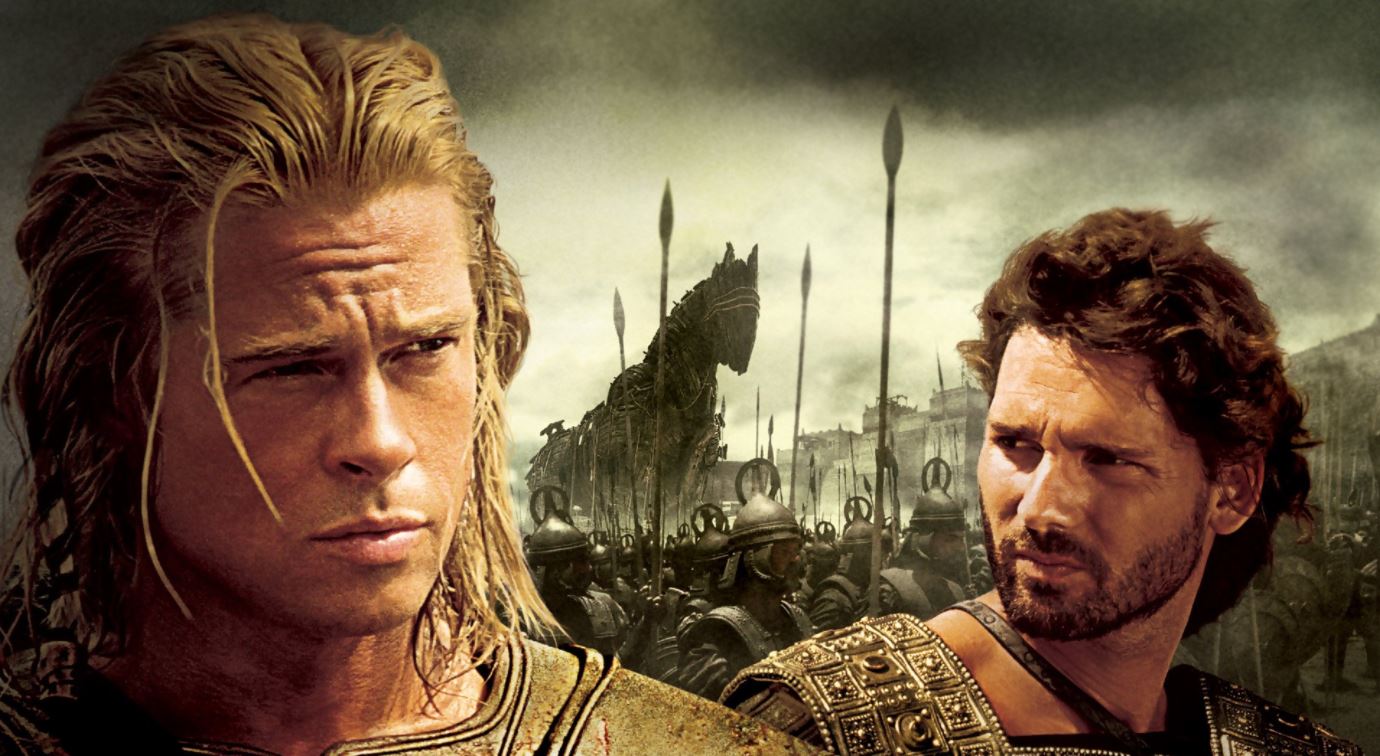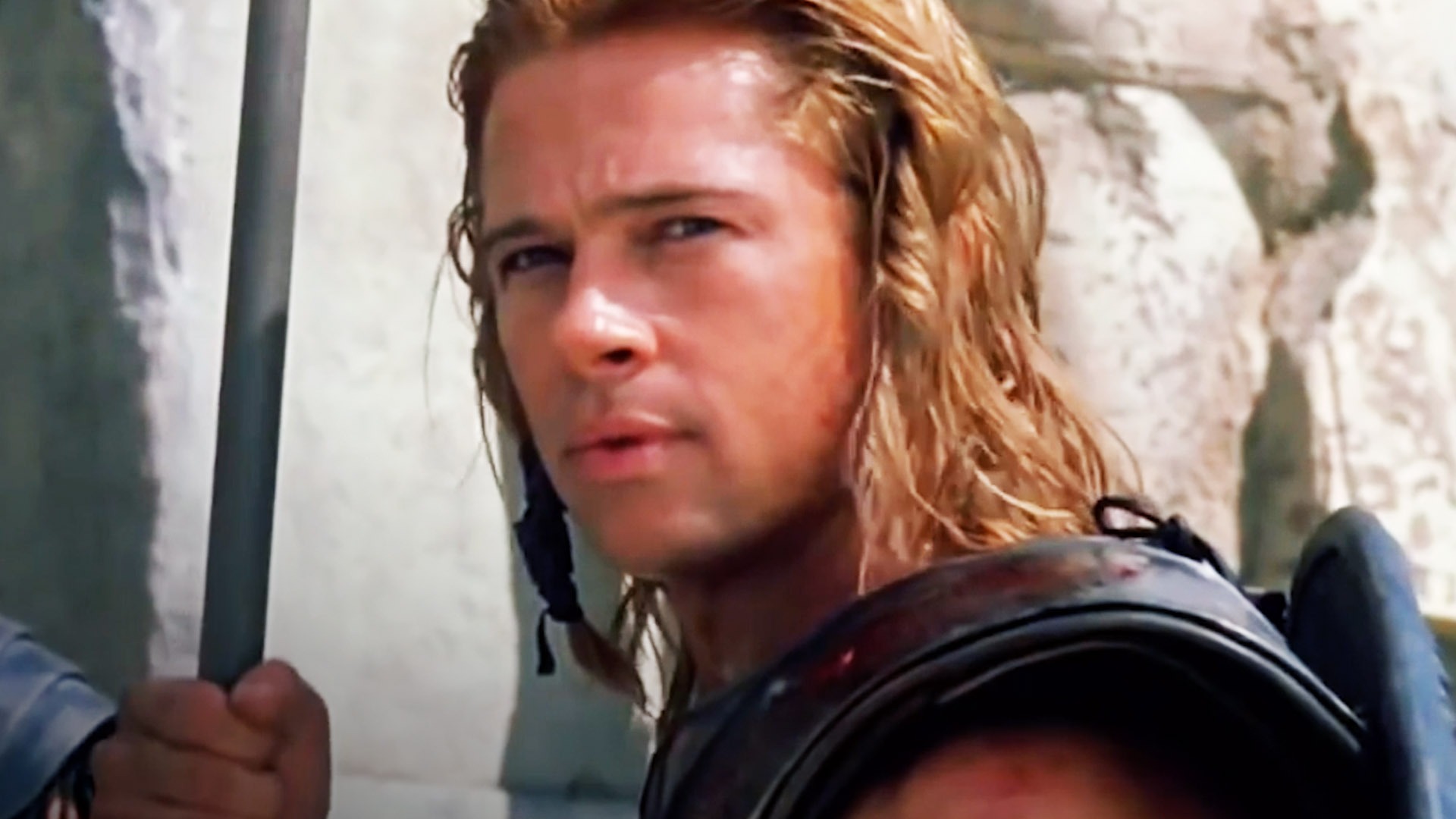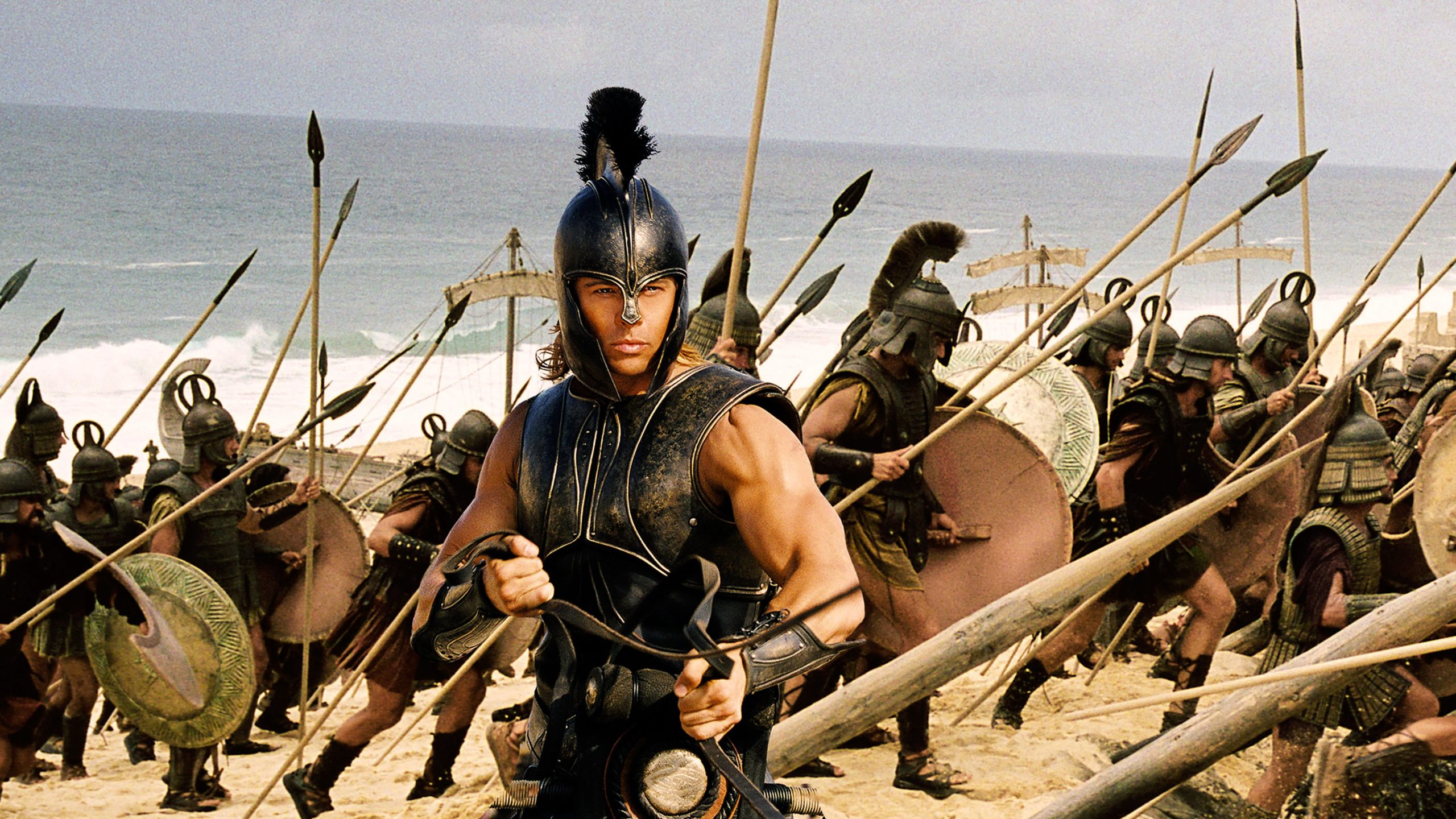Revisiting Troy: A Cinematic Epic Resurrected
Introduction:
In the realm of cinematic epics, few stories captivate the imagination as profoundly as the tale of Troy. Replete with heroic feats, tragic love affairs, and the clash of civilizations, the legend of Troy has endured through the ages, inspiring countless adaptations across various mediums. One such adaptation is the 2004 film "Troy," directed by Wolfgang Petersen, which sought to bring this timeless saga to life on the silver screen. As we delve into a comprehensive review of "Troy," we shall dissect its merits, critique its shortcomings, and examine its enduring legacy in the annals of cinema.
I. Setting the Stage: The Mythical Landscape of Troy
Before delving into the cinematic rendition, it's crucial to appreciate the historical and mythological backdrop against which "Troy" unfolds. At the heart of the narrative lies the legendary city of Troy, a bastion of civilization nestled amidst the rugged plains of Anatolia. The film meticulously recreates the grandeur of ancient Greece and the opulence of Troy, immersing viewers in a world where gods walk among mortals, and fate hangs in the balance.
II. Casting Call: The Heroes and Villains of Troy
Central to any epic are its characters, and "Troy" boasts a stellar ensemble cast that breathes life into these iconic figures. At the forefront is Brad Pitt's portrayal of Achilles, the indomitable Greek warrior whose prowess on the battlefield is matched only by his hubris. Pitt's charismatic performance lends depth to Achilles, transforming him from a mere legend into a flawed yet compelling hero.
Opposing Achilles is Eric Bana's Hector, the noble prince of Troy whose sense of duty and honor propel him into conflict with the Greeks. Bana imbues Hector with a sense of gravitas and integrity, making him a worthy adversary to Achilles and a sympathetic figure in his own right.
Rounding out the cast are stalwart performances from Orlando Bloom as the idealistic Paris, Diane Kruger as the enigmatic Helen, and Peter O'Toole as the venerable King Priam. Each actor brings nuance and complexity to their respective roles, enriching the tapestry of characters that populate the world of "Troy."
III. Swords and Sandals: The Spectacle of Battle
One of the defining features of "Troy" is its epic-scale battle sequences, which showcase the brutal realities of ancient warfare in all its glory. From the thunderous clash of armies on the plains of Troy to the intimate duels between champions, the film delivers visceral action that is both thrilling and immersive.
Credit must be given to the filmmakers for their meticulous attention to detail in choreographing these battle scenes, which are as visually stunning as they are historically accurate. The use of practical effects, combined with CGI enhancements, lends an authenticity to the combat that is rarely seen in modern cinema.
Moreover, the cinematography and editing work in tandem to capture the chaos and carnage of war, with sweeping camera movements and rapid cuts heightening the sense of urgency and intensity. The result is a series of set-pieces that rank among the most memorable in cinematic history, showcasing the power and spectacle of ancient warfare.
IV. Matters of the Heart: Romance and Tragedy in Troy
Amidst the bloodshed and strife, "Troy" also explores the complexities of human emotion, particularly in the realm of love and desire. At the heart of the story lies the ill-fated romance between Paris and Helen, whose forbidden love serves as the catalyst for the Trojan War.
While some critics have derided this aspect of the film as melodramatic, there's no denying the palpable chemistry between Bloom and Kruger, whose performances imbue their characters' relationship with genuine emotion and vulnerability. The love affair between Paris and Helen serves not only as a driving force behind the conflict but also as a poignant reminder of the cost of passion in a world torn apart by war.
Similarly, the relationship between Achilles and Briseis, a captured Trojan princess, adds another layer of complexity to the narrative, exploring themes of loyalty, honor, and redemption. Theirs is a tragic romance born amidst the chaos of war, fraught with tension and longing, yet ultimately doomed by the inexorable march of fate.
V. Myth vs. Reality: Navigating Historical Accuracy
While "Troy" is undeniably a work of fiction, it draws inspiration from the rich tapestry of Greek mythology and history. However, as with any cinematic adaptation, certain liberties are taken with the source material for the sake of narrative expediency and dramatic effect.
Critics have pointed out numerous inaccuracies and deviations from the original myth, from the omission of divine intervention to the conflation of historical figures and events. While purists may lament these departures, they are ultimately a necessary compromise in translating the sprawling epic of the Trojan War into a cohesive and accessible narrative for a modern audience.
That being said, "Troy" still manages to capture the essence of the mythos that has captivated audiences for millennia, weaving together elements of heroism, tragedy, and divine intervention into a cinematic tapestry that is both epic in scale and intimate in its portrayal of the human condition.
VI. The Legacy of Troy: A Cinematic Epic Resurrected In the years since its release, "Troy" has become a touchstone of the sword-and-sandal genre, standing alongside classics such as "Ben-Hur" and "Gladiator" as a testament to the enduring power of myth and legend on the silver screen. While not without its flaws, the film remains a worthy addition to the pantheon of cinematic epics, thanks to its stellar cast, breathtaking visuals, and timeless themes.
In the years since its release, "Troy" has become a touchstone of the sword-and-sandal genre, standing alongside classics such as "Ben-Hur" and "Gladiator" as a testament to the enduring power of myth and legend on the silver screen. While not without its flaws, the film remains a worthy addition to the pantheon of cinematic epics, thanks to its stellar cast, breathtaking visuals, and timeless themes.
Moreover, "Troy" has sparked renewed interest in the mythological tales of ancient Greece, inspiring audiences to delve deeper into the rich tapestry of stories that have shaped Western civilization for centuries. In this sense, the film serves as more than mere entertainment; it is a gateway to a world of myth and legend, where gods and mortals collide in a timeless struggle for glory and immortality.
Conclusion:
In conclusion, "Troy" stands as a towering achievement in the realm of cinematic epics, bringing to life the timeless saga of the Trojan War with passion, spectacle, and grandeur. While not without its flaws, the film remains a testament to the enduring power of myth and legend, captivating audiences with its epic scale and timeless themes. As we revisit this cinematic masterpiece, we are reminded of the timeless allure of the ancient world and the enduring legacy of the stories that continue to inspire us to this day.



















































